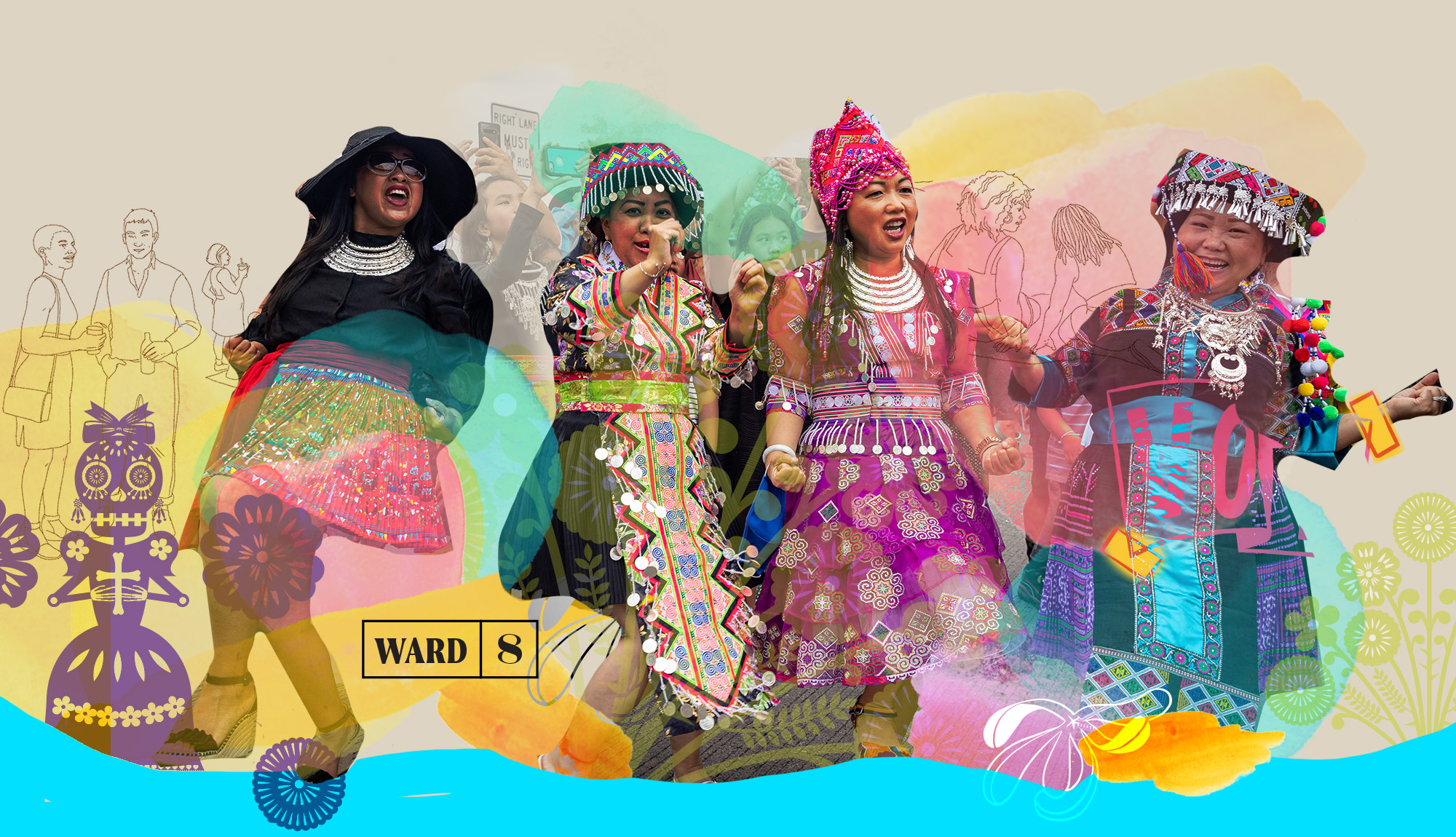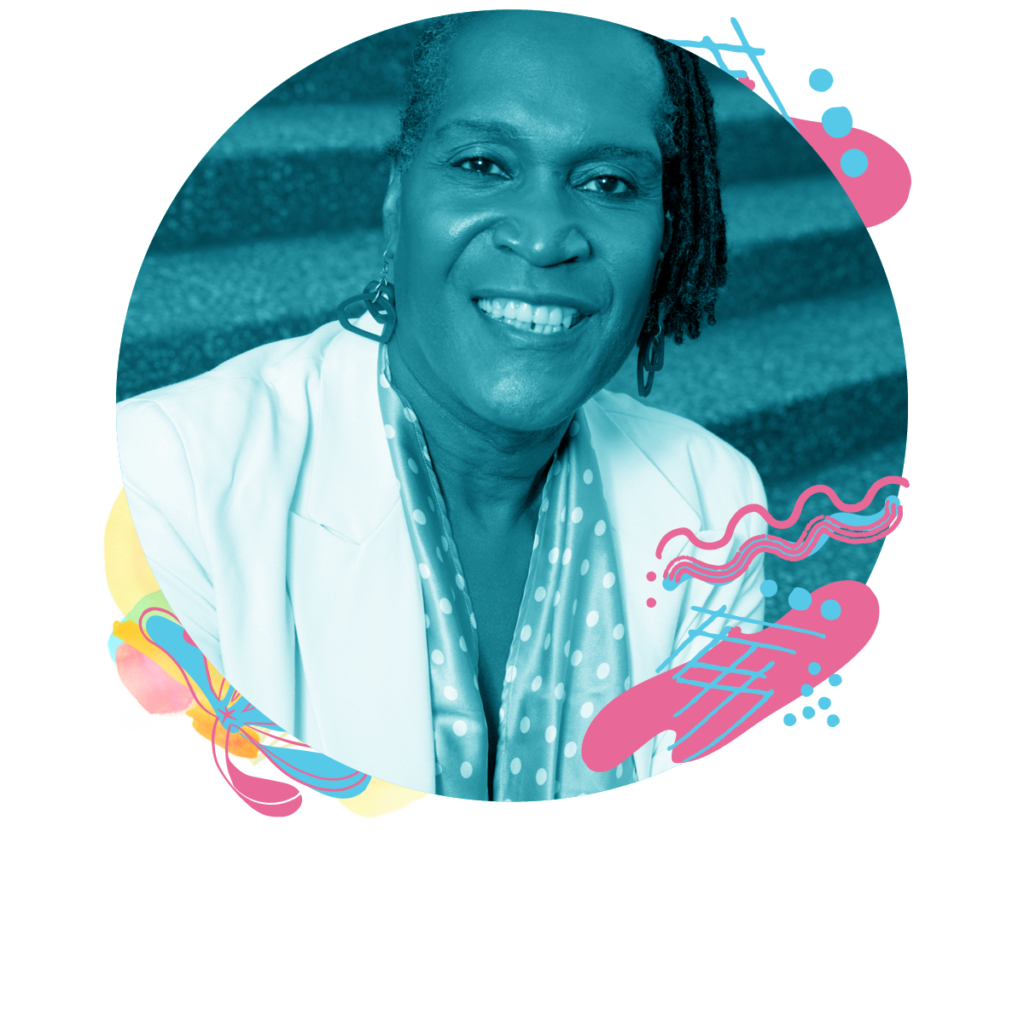



Andrea Jenkins
Pronouns She/Her
Party Affiliation Democratic Farmer-Labor
Website andrea-jenkins.com
Values
Communities can learn a lot about candidates from the ways they show up in their city and neighborhoods when the attention isn’t on them. What is one non-performative action you’re proud of that you’ve taken in support of the citizens you represent (or hope to represent)?
I led our City Council through the strategic racial equity action plan, which embedded racial equity through the strategic plan of the City. Through that process, we developed a Racial Equity Impact Analysis (REIA), which documents the racial equity impact of any decision or expenditure.
Public Safety
How will you keep young Black and brown kids safe — those who are simultaneously the most at risk from gun violence but also most at risk during interactions with the police? What do you believe are best practices for solving these issues in tandem, and how will you involve the communities most affected in problem solving and determining next steps?
I believe in supporting a trauma-informed, public health approach to safety. To me, this means reallocating public safety funds from the police department to create a reimagined public safety continuum that includes sworn police officers, community-based crime prevention groups, and dedicated mental health providers. I also believe in centering the voices of people who are most impacted by crime, many of whom are asking this same question. Another way to influence this is by supporting harm reduction and decriminalization efforts for non-violent offenses such as substance use. Additionally, we need to address rising rates of gun violence, by enforcing common sense gun laws such as background checks and red flag law.
People of color in Minneapolis are killed or otherwise harmed by law enforcement at disproportionately high rates, despite many attempts at reform over several election cycles. How do you intend to reshape a policing system that has been resistant to change, and slow to show meaningful strides toward equitable community outcomes?
My vision is a continuum of public safety that has a separate mental health response. We know that so many of our jails here, and all around the country, are essentially mental health hospitals. We need to have a much broader societal response to helping people deal with chronic and severe mental health issues, as well as immediate mental health crises that often end with people losing their lives.
It would have to include fairness and justice in our economic systems. A big part of what is driving crime in our society is the imbalance in resources that people have. It is a destructive reality of capitalism — the violent [results] of capitalism.
We need to have full medical coverage for everybody. It should not be tied to a job. People should have access to medical care. We need to have a housing continuum that respects the humanity of everybody, and provides safe and affordable housing.
We need a professional, well-trained, highly accountable, community-controlled police force to investigate crimes and hold people accountable for breaking the law. If we are a nation of laws, and laws are the things that attempt to keep and hold our democracy together, then we need a system to enforce those laws. It is a very fragile system right now.
What are your stances on memorializing public spaces when our community is grieving, and/or demanding action through constitutionally-protected protests? What policies would you put in place or what organizations would you engage to ensure residents can do these things safely?
First of all, I support the First Amendment right to peacefully assemble for grieving, protesting, and memorializing. I believe these activities should be conducted in a manner that keeps everyone safe and free from discrimination. I will continue to fight for policies that support these rights for everyone.
Housing
Rental assistance from the federal government has helped keep people in their homes through the pandemic. This funding is not permanent, however, and inability to pay is the leading cause of evictions. What is your stance on more permanent rental assistance, rent stabilization, and/or rent control measures in Minneapolis?
I believe that there are multiple ways to help address rising costs of housing. For one, we need to provide additional assistance to lower income families who are struggling to make their rent on time. For example, our Stable Homes Stable Schools program is one program I have supported to help keep children in school and disrupt cycles of harm. In this budget cycle, we are proposing additional resources to make this program permanent. Additionally, I believe we must expand rent subsidies in the form of universal basic income (UBI) to other communities and populations struggling to make ends meet.
Gentrification results in cultural loss for communities and major economic impacts for those priced out of their longtime neighborhoods. As our city grows, what plans do you have to combat gentrification and increase the amount of affordable housing available in Minneapolis?
The Minneapolis 2040 plan aims to increase the supply of housing by removing many of the barriers to the creation of new homes, and can ease market pressure on what is called the “missing middle”: triplexes, SROs, ADUs, & smaller apartment buildings. This, however, does not guarantee that such residences will be affordable to those whose housing situation is not stable. Thus, we need rent stabilization combined with a greater public commitment to financing subsidized housing. Many of the policy proposals to address housing affordability require assistance from the state and federal government. Due to my ability to build relationships with these entities, I have earned the endorsement of US Representative Ilhan Omar and numerous state elected officials. During my 3 1/2 years on the council, I have sought for increases in funding for public housing, and will continue this push if re-elected. Additionally, I support development of cultural districts in neighborhoods with high concentrations of immigrants and people of color, and in doing so, we aim to center these residents and support development that does not price them out of their neighborhood.
In the last few years, Minneapolis has experienced a spike in encampments of unhoused people on public land — a high percentage of whom are Black and/or Indigenous. Many of our unhoused neighbors see this as their best housing option over shelters (for reasons of personal safety, pet ownership, or having to abandon property). What will you do to protect these neighbors and connect them with safe and stable housing?
While the encampments have allowed people to create communities, the reality is that such a residential mode does not facilitate a healthy existence. In order to enable a relocation to housing that provides such protections, we need to connect these communities to resources and support services to access long-term affordable housing. A group of 4 individuals who are sharing a tent today could be sharing a house or apartment next month – and their friends and family in neighboring tents can also be down the hall in their new apartment residence, or down the street in a nearby house. We can ensure that they receive job training services if they are interested in gaining employment, and health and addiction services to address their needs. I will work with local nonprofits to make sure these connections are made and people find housing.
Jobs and Economy
Black, Indigenous, and Minneapolis residents of color pay local taxes and contribute to our local economy, but often do not receive the same shared economic benefits as their white counterparts. Through generations of oppression via policy and unequal systems, wealth has been chronically and systematically extracted from BIPOC communities—how do you envision addressing this legacy of economic harm, in both the short term and the long term?
Through my efforts on the Council of establishing a Truth and Reconciliation Work Group (TRC), it’ll examine the historical inequities and oppressive policies as related to Black and Indigenous Minneapolitans. We seek to document, dissect, and make recommendations to repair the harms done by these policies. Additionally, I’ve championed cultural corridors and created a cultural corridor policy to support disaffected communities through targeted economic development, job training, and financing/lending support.
The power dynamics of work are heavily tilted against low-wage workers, especially immigrant workers. What actions have you taken or what plans do you have to protect and support these workers?
As a current union member, I know the importance of workers rights and the power in collective bargaining. I believe labor unions are one way to help erase the economic and income disparities we have in our city, state, and country right now. I plan to continue supporting efforts to improve workers protections in relation to healthcare, wages, sick leave, parental leave, and more because I understand the importance of these protections in addressing cycles of poverty and harm.
For example, I was proud to support the Minneapolis Wage Theft ordinances, which safeguards the wages of workers. To date, we’ve recovered millions of dollars for those employed in the city.
Racial Justice
Explain your understanding of systemic racism, and how—or whether—you believe it affects Minneapolis’s education systems & outcomes, our housing market, our environment, public safety, healthcare, or other major systems.
Systemic racism is the foundational underpinnings of western society. It is the essence of colonialism, patriarchy, and religious subjugation. It permeates all of our institutions by restricting opportunities for Black, Brown, and Indigenous people.
Our community suffers from some of the greatest racial disparities in the country across many social, educational, and economic metrics—and has for some time. If you’re in government now, what have you done to address this, and do you feel your efforts have been enough despite the lack of change? And if you’re seeking office for the first time, what ideas are you going to put forward that haven’t already failed?
After the murder of George Floyd, I was deeply struck by the notion that the heinous murder was a blatant act of racism. Consequently, I announced that I would bring forward a resolution declaring racism a public health emergency. That declaration spurred Hennepin County to make a similar declaration, as well as the Minnesota House of Representatives to create a select committee on racial justice. We’ve been working with Dr. Rachel Hardeman from the University of Minnesota to develop tangible solutions to address racism from a public health perspective.
Climate
Climate change is already upon us, and its causes are on such a large scale that we can’t expect everyday Minneapolitans to recycle or LED bulb our way to a solution. How would you encourage businesses in our city to adopt practices to mitigate climate change, and/or hold them accountable for practices that worsen it?
A City of Minneapolis initiative I support is called “Rebuild Resilient”, which is an expansion of the green cost share program to assist businesses harmed by the uprisings to replace their appliances, etc. with more energy efficient products. This will lower their energy costs as well as help to lower greenhouse gas emissions in the city.
Additionally, we’re working with the utilities, “Clean Energy Partnership”, which is a first in the nation agreement that brings together the city of Minneapolis, Xcel Energy, and CenterPoint Energy in support of the city’s Climate Action Plan and 2040 energy vision. Together, we will plan, implement, market, and track new approaches to delivering energy efficiency, energy choices, and renewable energy to Minneapolis residents and businesses.
Voters’ Rights
What have you done or what will you do to protect and expand voter access in your ward/Minneapolis?
I support and promote early voting, voting by mail, and absentee voting. I also host voter registration events to ensure voters are properly registered as well as promote opportunities for people to work in the election process as election judges, etc.
Governance
Who are the people and/or organizations that would be part of your decision-making process in office?
Depending on the issue, I’m willing to work with advocacy groups of all stripes to develop solutions for the City of Minneapolis– Labor unions, LGBTQ rights groups, Women’s rights groups, Reproductive rights groups, industry-specific groups, and all cultural advocacy organizations (LEDC, ADC, NACDI, and others).
Last Word
What’s one thing you think Minneapolis does well that you’d like to build upon if elected?
Minneapolis has an amazing arts community, and I want to continue to build on that asset by building out a new Department of arts and culture with the City of Minneapolis. The City has long been lacking in having a central place that brings together all of the artistic resources of the City. We must support small and mid-size art institutions, so they don’t become casualties like Heart of the Beast, Intermedia Arts, MayDay Parade, etc.
